My favorite pictures from 2017
/It's a little past the beginning of the year, but I was thinking about how I spent a lot of time in 2017 not just writing, but taking pictures. The Verge has an incredible creative director, James Bareham, and he's been an enormous source of inspiration and guidance in the last year.
One of the things that we've worked on doing at the site is a lot of our own photography of events or products. As a result, I've taken pictures at conventions, of books, events, and other random things over the last year, and I think as I've grown as a writer, I've gotten better as a photographer as well. Here's some of my favorite images from the last year.
I took this picture of Adam Savage at San Diego Comic-Con back in July. He used to host Mythbusters, but since that show has ended, he's one of the people behind Tested, and does a lot of geeking out about costumes and cosplaying. This year, he did a trip out to the con floor in something he calls "Adam Incognito," wearing one of the screen-used costumes from Alien: Covenant.
I didn't write an article about these guys, but I couldn't resist snapping a picture of a trio of members from the 501st Legion's Imperial Sands Garrison at San Diego Comic-Con in July. I built one of these costumes, and it's one of my favorites. These guys looked awesome.
On the last day of San Diego Comic-Con, I started looking for Wonder Woman costumers, to chat with them about the popularity and appeal of the costumes. I photographed a couple, but Vanessa Perez of Florida stood out. She absolutely looked the part, and did a fantastic job assembling her costume.
One of the big things that I ended up doing this year was photography for my book reviews. I spoke with James about what the look should be, and we came up with a pretty standard formula for reviews: the book, surrounded by a notebook, pen, tea, and other small items that were thematically congruent to the story. This review for The Fortress at the End of Time was the first of these photographs.
While we had a standard formula for book covers, I started to play around with it. The late Michael Crichton came out with a book this year, Dragon Teeth, about paleontologists in the wild west. It felt appropriate to make it look as though the book was buried. My colleagues thought at first that it was a stock image provided by the publisher. It's a pity the book wasn't all that great.
NK Jemisin's Broken Earth trilogy came to an end this year with The Stone Sky, and it is absolutely one of my favorite fantasy trilogies of all time. Jemisin invests a lot of time with rock and geology in this one (which I appreciated, having studied geology in college), and for the review, I wanted to do something a little different. Fortunately, I live in a town that's known for its granite production, and finding a suitable rock to photograph these against wasn't hard. I love how the lighting, colors, and positioning of these came out for this shot of all three covers of the trilogy.
I didn't write the review for Annalee Newitz's debut novel Autonomous for The Verge (my review is here) but I did shoot the cover image. The book is all about pharmaceuticals in the future, so it seemed appropriate to scatter some random pills around in addition to the teacup and notebook.
I've come to really love The Folio Society's special editions of science fiction books. They released a pair of Philip K. Dick novels tête-bêche style: A Scanner Darkly, and Do Androids Dream of Electric Sheep? It's a really beautiful edition, and I love how the colors look here.
The Women's March took place in January, and there was one in Montpelier, Vermont. I took my camera out and got some images of the crowds, including this fantastic trio of puppets from the Bread and Puppet theater.
With the Nintendo Switch hitting stores in March, I was inspired to go back to the first game system I ever owned: the Nintendo Gameboy. I still have my original one, but the screen isn't working properly. I ended up picking up a new (to me) one that worked perfectly, and went through The Legend of Zelda: Link's Awakening, and how it was important to me as a kid. It helped spark my love of fantasy, and I really like how this picture came out.
I attended New York Comic Con in October last year, and one of the neat exhibitions was Audible's promotion for Andy Weir's latest book, Artemis. The museum parts were okay, but the real showstopper was a replica Moon, at 1:500,000 scale. It's really impressive, because it's the closest that I'll likely get to the Moon, and seeing it up close (even a replica) like this was breathtaking. I ended up taking this shot with my phone, and it came out really nicely.
This picture never made it onto The Verge, but I felt like it captured the chaotic nature of New York Comic Con.
Not everything I took went to The Verge. I snapped this picture in December of the marquee of Montpelier's Capitol Theater when we went to go see The Last Jedi. It's got a filter on it, Silvertone, and the balance between light and shadows came out really, really well.
My brother Dan called me out last fall to help him split some wood at his house with a mechanical splitter. I wasn't doing anything that day, and it made for a good afternoon. I snagged this picture (thank you, portrait mode) while he was cutting up a log.
I have a ton of pictures of Bram, but we don't, for some reason, take a lot of family pictures. This was taken when we took a couple of days to drive down to Pennsylvania this summer. We stopped at Fort Ticonderoga, and paused for a family selfie.
Another rare family self-portrait. This was taken in Maine, when we got away for a couple of days to visit the beach. This was on our last day before we headed out, walking along the waves.
The shed behind my house, with some minor color filtering. I have hopes that I'll winterize it this year and turn it into an office.
It's always a rare moment when you get your child to sit still for just long enough to get a good picture of him.
The majestic Tiki, in the yard.
This was one of my joys this year: I constructed a costume of Link from Breath of the Wild for Bram last Halloween, and we ended up going up into the woods behind the house to take some pictures of him, as though he was in Hyrule.
Arthur, hanging out in the sun.
A goofy one of Bram, while we were camping with my brother and sister. I can't remember what I said to him, but he made a funny face.
A good picture of Tiki, just before we went out for a walk. This one graced my phone's lock screen for a good while.
Merlin, at his derpiness. He's a wonderful, affectionate cat, and this picture sums him up nicely.
There's probably other pictures that I've taken that I'm forgetting or overlooking, but these are what popped out at me from 2017. For the most part, I took the ones for The Verge (the watermarked ones are property of the site), with my Nikon D40, my entry-level DSLR. The others I took with my iPhone 8 Plus, which I bought expressly for the portrait mode.


















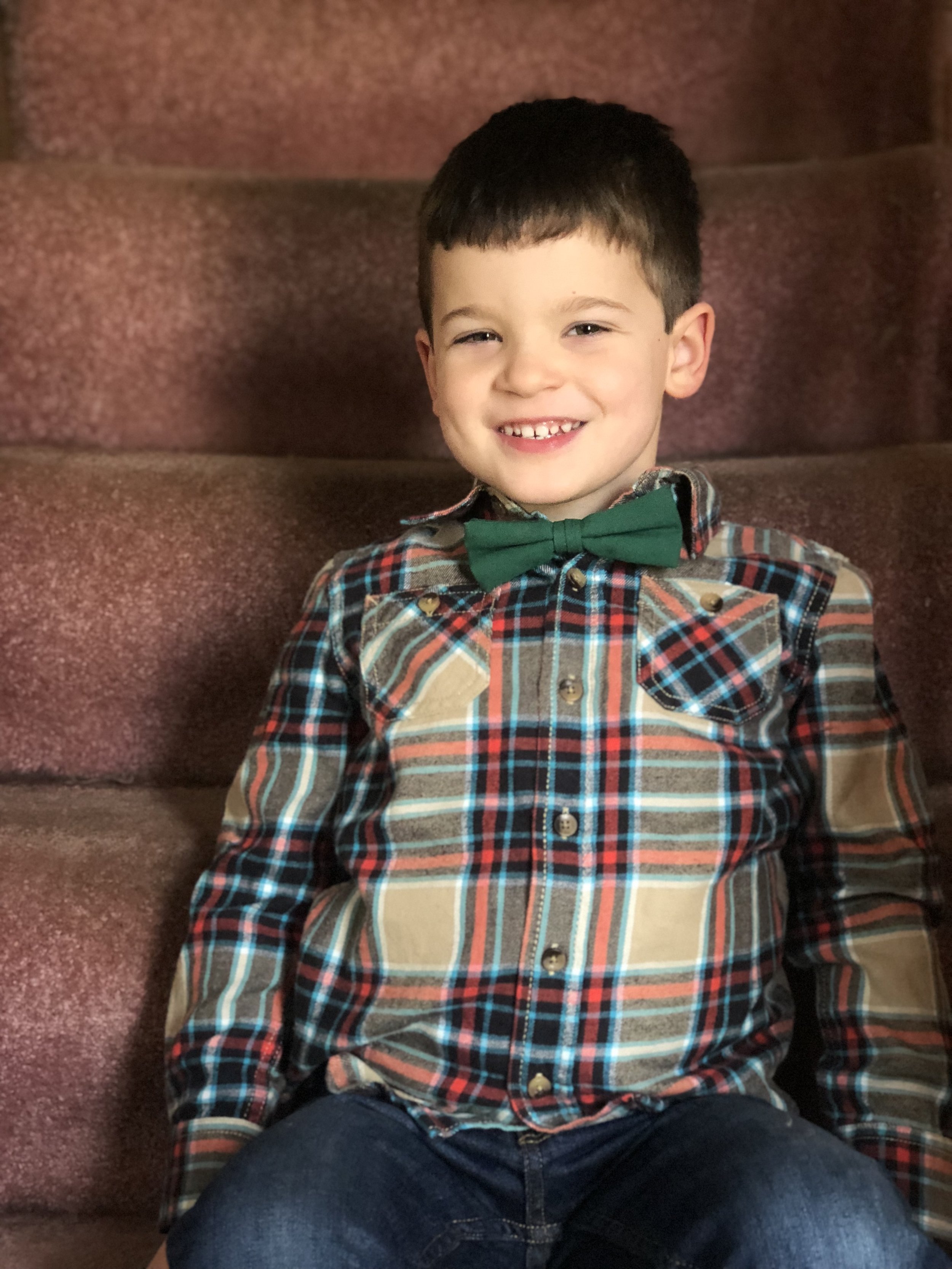

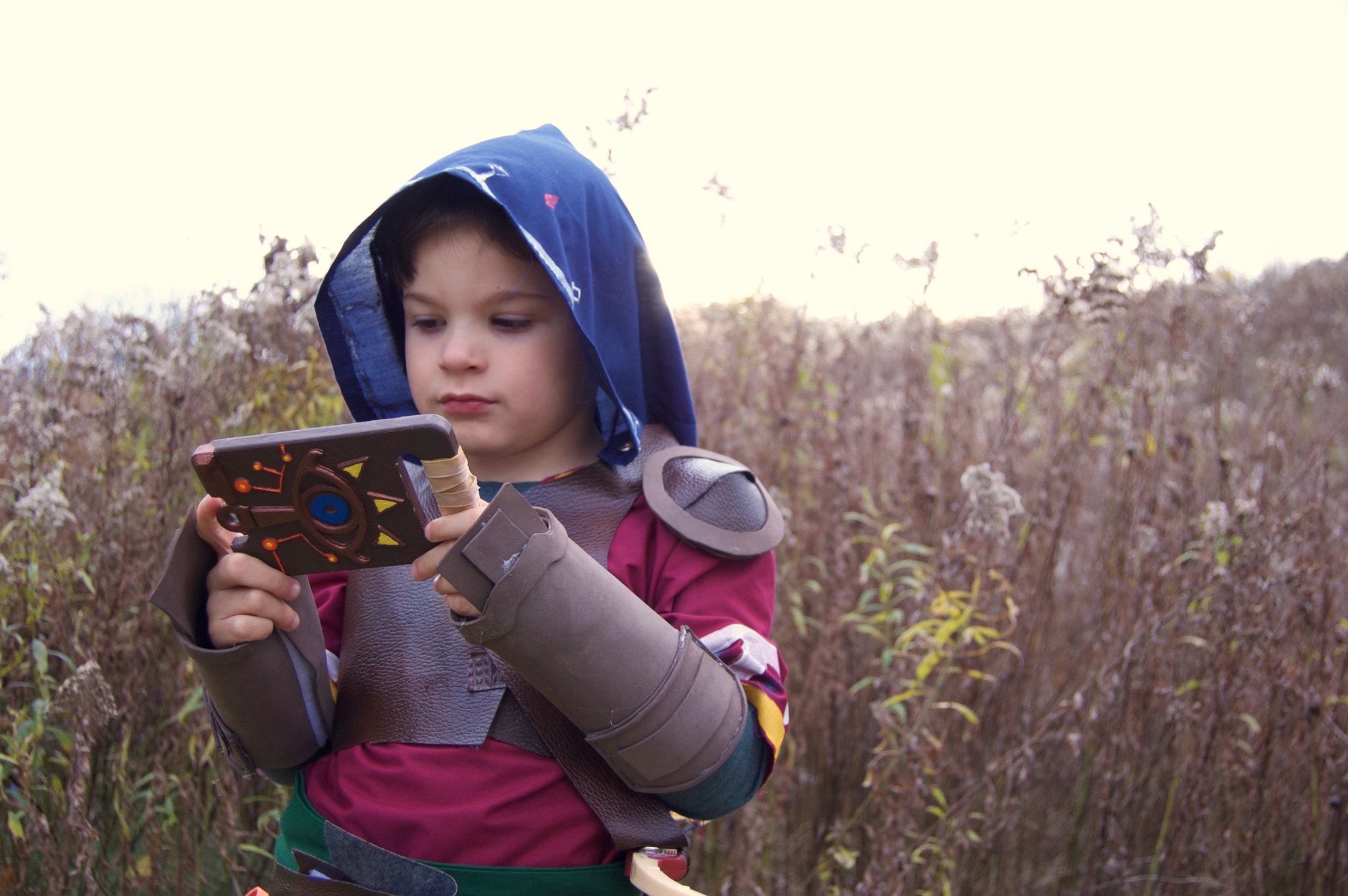


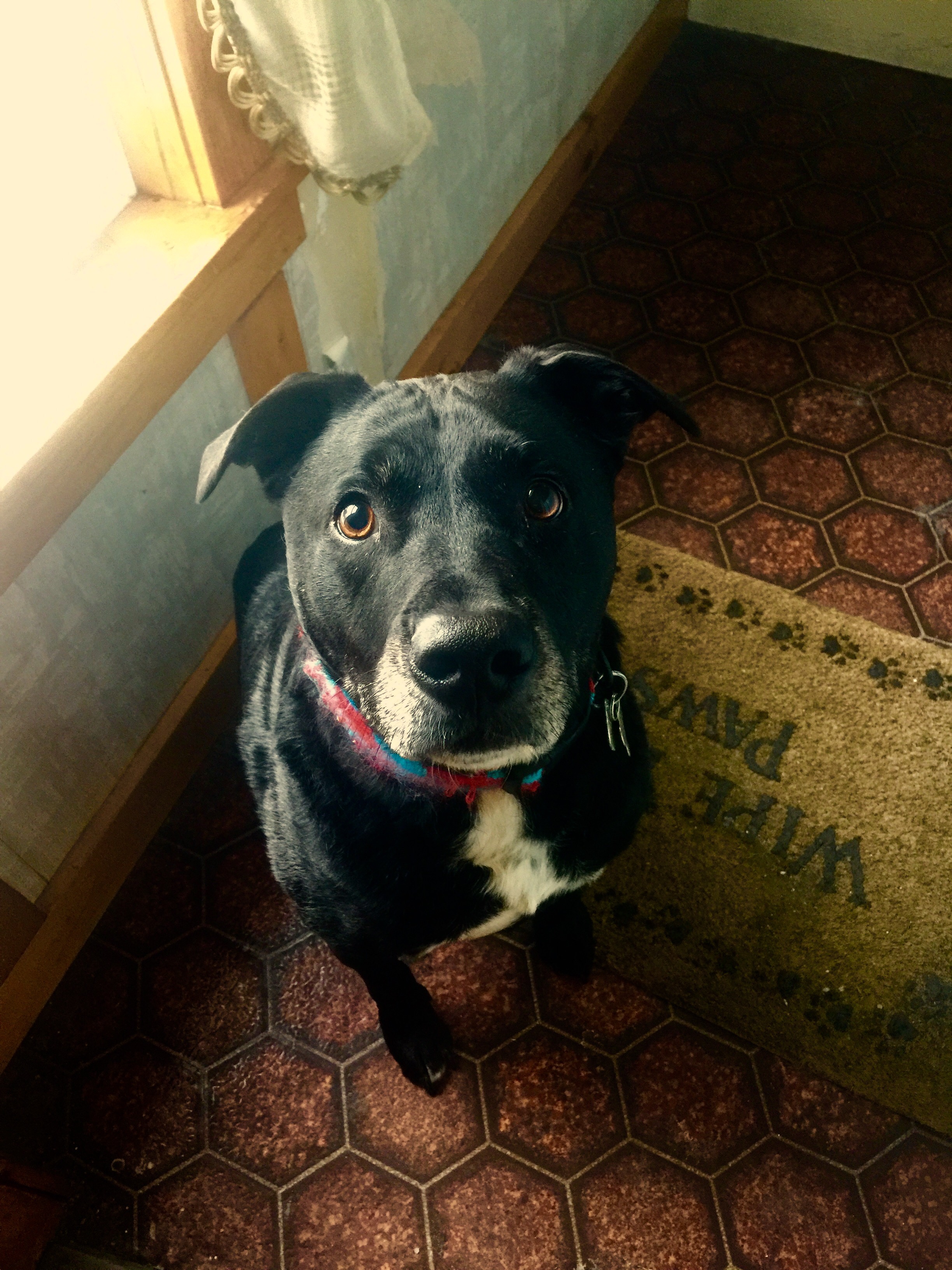

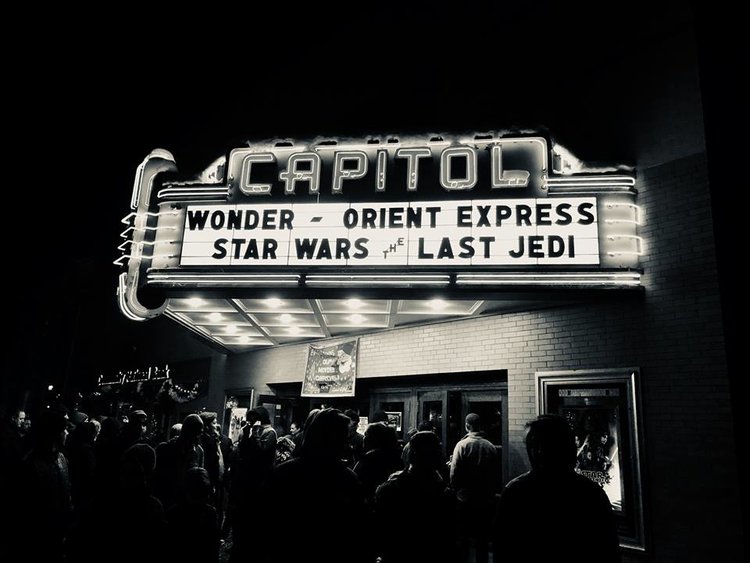
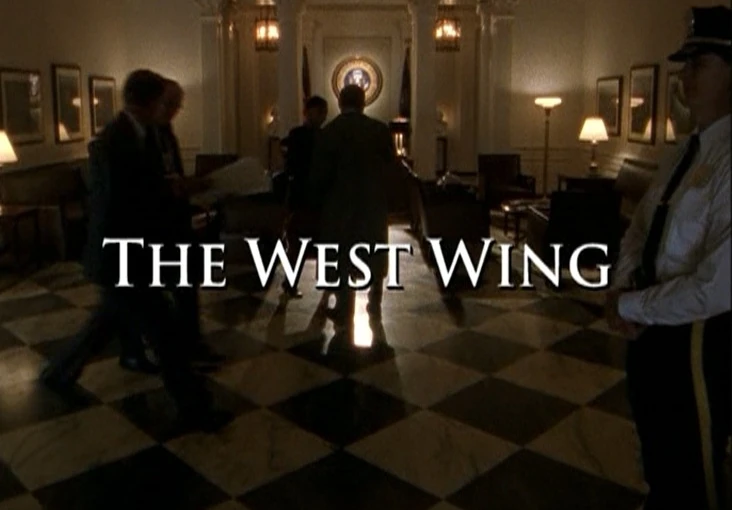 Every time we have a Presidential election, I find myself drawn back to a favorite show: The West Wing. I've found that it's a nice reprieve from the ongoing presidential primaries, debates and mud-slinging, but I also find that I've been approaching the show in different ways each time.
Every time we have a Presidential election, I find myself drawn back to a favorite show: The West Wing. I've found that it's a nice reprieve from the ongoing presidential primaries, debates and mud-slinging, but I also find that I've been approaching the show in different ways each time. Like many people, I got hooked on Serial about halfway through the first season when I had heard a bunch of ads for it on NPR, and diligently listened to the rest of the season as Sarah Koenig, worked her way through the story.
Like many people, I got hooked on Serial about halfway through the first season when I had heard a bunch of ads for it on NPR, and diligently listened to the rest of the season as Sarah Koenig, worked her way through the story.

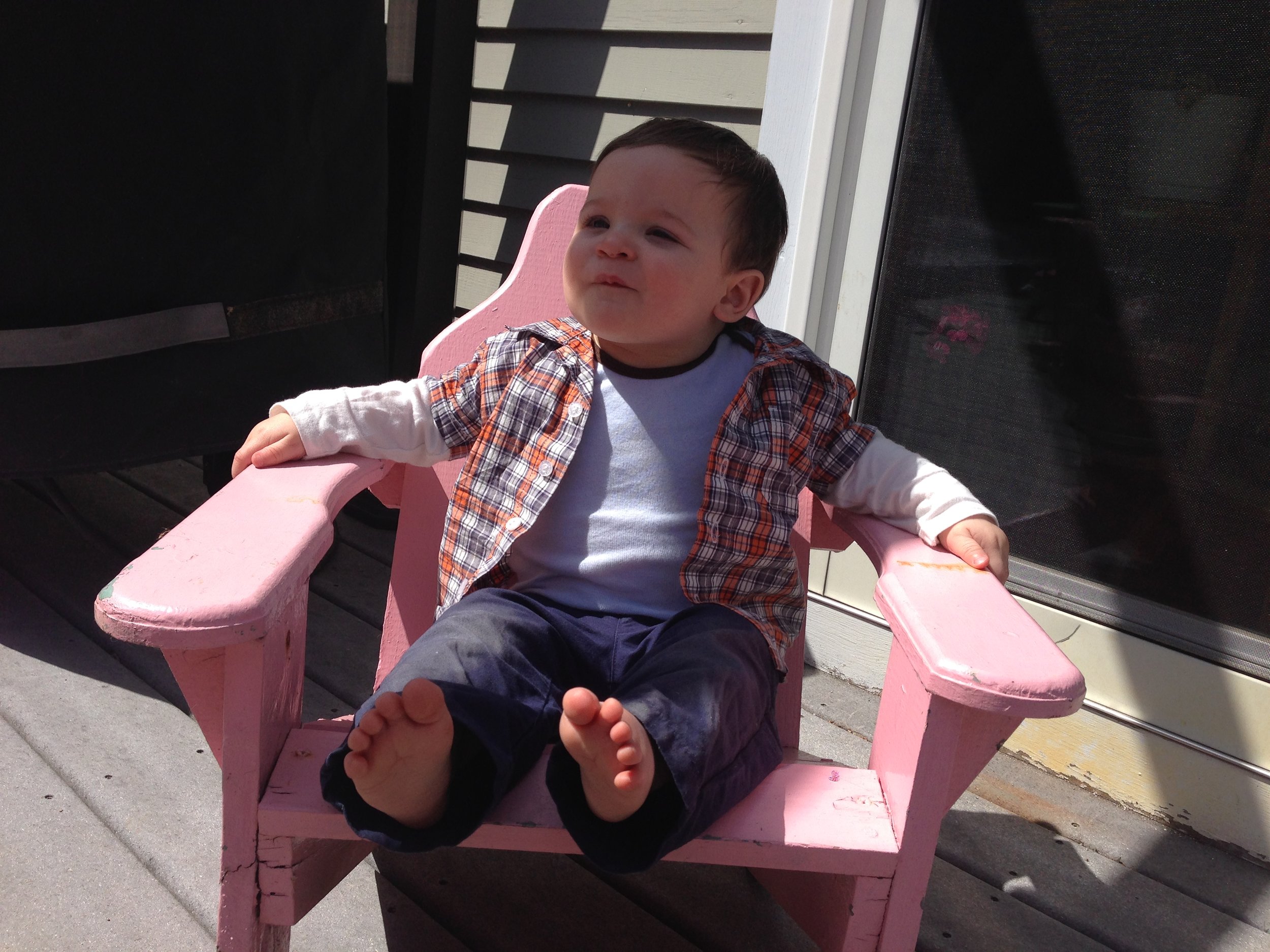 A year ago today, I held my son in my arms for the first time. Bram's birth was one of those moments that struck me hard: I remember gasping and crying in joy when I first saw him: after months of a conceptual baby, there he was, in the flesh. It's easy, looking back at just how pivotal that moment is: one moment, I'm just this guy. The next, I'm a father. With that moment, everything changes.
A year ago today, I held my son in my arms for the first time. Bram's birth was one of those moments that struck me hard: I remember gasping and crying in joy when I first saw him: after months of a conceptual baby, there he was, in the flesh. It's easy, looking back at just how pivotal that moment is: one moment, I'm just this guy. The next, I'm a father. With that moment, everything changes.


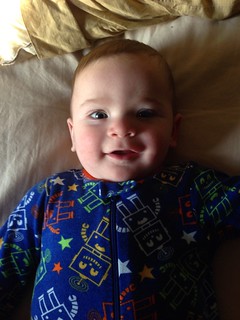
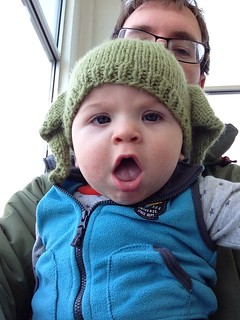
 2013 was a rush. So many things happened that have never happened to me before, all positive.
2013 was a rush. So many things happened that have never happened to me before, all positive. Little Bram was born this morning at 10:18am, and I'm now a father. Achievement unlocked, I guess. Abraham Charles Liptak is 7 lbs, 3 oz, 20 inches long and 100 % cute. He has features from Megan and myself, and so far, he's been fairly quiet: some fussing, a little crying, but mostly, sleeping and holding onto my fingers. He's one of the newest members of the human race, along with three others born last night and this morning here.
Little Bram was born this morning at 10:18am, and I'm now a father. Achievement unlocked, I guess. Abraham Charles Liptak is 7 lbs, 3 oz, 20 inches long and 100 % cute. He has features from Megan and myself, and so far, he's been fairly quiet: some fussing, a little crying, but mostly, sleeping and holding onto my fingers. He's one of the newest members of the human race, along with three others born last night and this morning here.

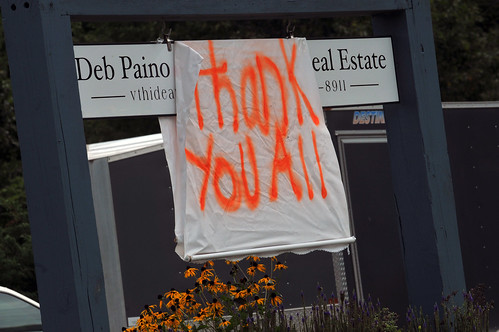 This past weekend, I was able to volunteer in both Waterbury and Moretown, two towns that are struggling with the floods. The aftermath was heartbreaking. My hometown was inundated with upwards of 7 feet of flood waters in places, and many other communities around the state were under water, with roads flooded, houses swept away, and businesses destroyed.
This past weekend, I was able to volunteer in both Waterbury and Moretown, two towns that are struggling with the floods. The aftermath was heartbreaking. My hometown was inundated with upwards of 7 feet of flood waters in places, and many other communities around the state were under water, with roads flooded, houses swept away, and businesses destroyed.

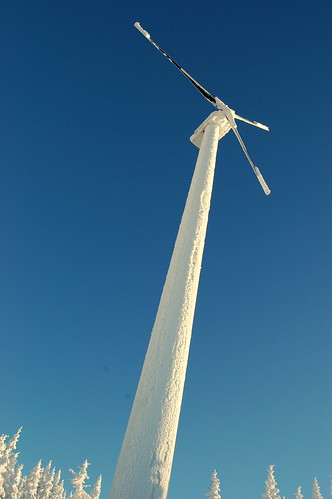
 This past weekend was the Wizard World Boston comic convention, held at the Hynes Convention Center in downtown Boston, something that the New England Garrison has been planning for almost a year now. This has been quite the year for conventions for the group. We were at the Boston and Granite City Comic Cons earlier this year, then Celebration 5, and now this one, with SupermegaFest coming up.
This past weekend was the Wizard World Boston comic convention, held at the Hynes Convention Center in downtown Boston, something that the New England Garrison has been planning for almost a year now. This has been quite the year for conventions for the group. We were at the Boston and Granite City Comic Cons earlier this year, then Celebration 5, and now this one, with SupermegaFest coming up.

 This past weekend, my parents, my brother and sister, along with their significant others, my Uncle Tom and Aunt Jan, myself and girlfriend and our dog gathered at home for what has a yearly tradition: cidering. It's become a time when we all gather (if able - this was the first time that I've been able to make it in a couple of years) and spend the day working to press a large amount of homemade apple cider for the next year.
This past weekend, my parents, my brother and sister, along with their significant others, my Uncle Tom and Aunt Jan, myself and girlfriend and our dog gathered at home for what has a yearly tradition: cidering. It's become a time when we all gather (if able - this was the first time that I've been able to make it in a couple of years) and spend the day working to press a large amount of homemade apple cider for the next year.